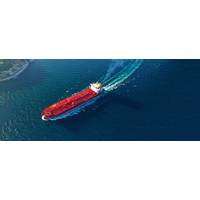Trade executives say that global LNG demand will rise as new supplies lower prices.
Trading executives at the Asia Gas Markets Conference on Tuesday said that global liquefied Natural Gas (LNG), demand will rebound due to new supply entering the markets, which is expected to drive prices down and spur the interest of price-sensitive buyers.
Mohammad Arif is the head of LNG Asia Pacific at Uniper. He said that demand would gradually develop, with prices under $7-8 per million British Thermal Units (mmBtu). Asian spot LNG is currently priced at $11.20/mmBtu.
Benjamin Comninos is the director of trading portfolio optimization for Cheniere. He said that markets like China, India, and Southeast Asia could see a recovery in demand. China and India have the potential double their imports within the next decade.
As prices drop, some of Europe's industrial gas consumption could return, since not all the demand destruction was structural.
The executives also noted increased liquidity, flexibility and optimization activity on the LNG market. Sid Bambawale is the head of global LNG Trading at ExxonMobil Asia Pacific. He said that increasing liquidity was a permanent trend, and activity by buyers or sellers happened regardless of prices. He said that "optimization" will be a bigger word in the coming years than trading, pointing out the increasing use of FOB DES cargo swaps as well as price index management strategies. The FOB (free on board) term allows buyers to resell their cargoes. DES (delivered from ship) terms, however, tend to have fixed delivery points.
He said: "You might have purchased on TTF, Henry Hub, or Brent (pricing) but when you reach a delivery period you may decide that you don't want to use this index." "These solutions around risk management and optimizing will be the next wave of collaboration." Comninos notes that buyers and sellers are increasingly interested in optimizing their portfolios together, and there is also a growing demand for cancellation rights and custom-made contract structures.
He said that a few years ago, oil-linked point-to point (delivery), with limited diversion right, was the norm. But now, we see a lot of creativity from those more traditional players.
Arif, from Uniper, says that partnerships will be important for buyers who lack the scale they need or trading or shipping abilities.
He said that "this will probably be the next big thing for the LNG industry. To see more structured partnerships as the market gets more liquid.
(source: Reuters)


